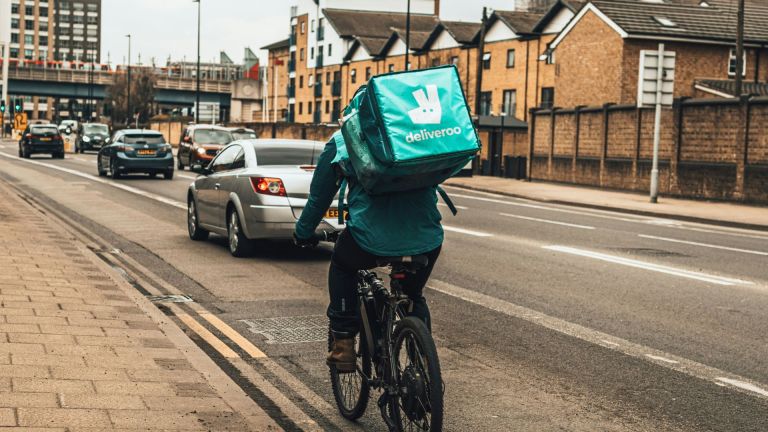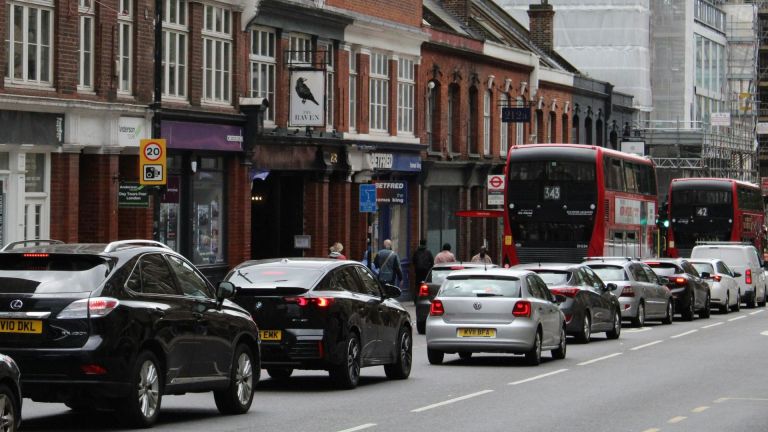Over three million people are currently pushed into poverty by their housing costs and one in five children are now living in overcrowded, unaffordable or unsuitable homes. More councils than ever before report they are facing an increase in people experiencing homelessness, while their stock of temporary accommodation, such as B&Bs, is running out.
This is more than a cost of living crisis – it’s a housing crisis, and it’s been building for years.
Where did it go wrong?
Housebuilding has failed to keep pace with demand for years, with a sharp decline in social housing construction in the last decade. This is particularly acute in England, which underinvests in affordable housing compared with the rest of the UK. Scotland, for example, is building council houses at a pro rata rate which is far higher than England’s.
In 2010, funding for affordable housing was cut by 63%, including all funding for social rented homes. This led to an 81% fall in the delivery of new social housing.
Analysis by Heriot Watt University in 2018 identified a need for 340,000 homes each year in England to 2031, including 90,000 for social rent and 25,000 for shared ownership. In contrast around 233,000 new homes (not all new build) were supplied in 2021/22, of which only around 7,500 were social homes – and while in huge demand, these continue to be lost through Right to Buy.
Much of what we’re seeing now is a direct result of the failure to build enough affordable homes. In England, the government switched much of its support to the private market, which currently receives over 50% of available government subsidy. This contrasts with Scotland, Wales and Northern Ireland, whose governments devote at least 80% of funding towards their social housing sectors.
Advertising helps fund Big Issue’s mission to end poverty
What impact is this having?
There are half a million more families in need of social housing in England than are recorded on official housing waiting lists (National Housing Federation). This equates to 4.2 million people, including 1.3 million children. Overcrowding is the largest problem, affecting nearly 3.7 million people.
With social housing failing to keep up with demand we’ve seen an expansion of the (more expensive, less secure) private rented sector which doubled in size between the early 2000s and 2013-14. Too many renters live in damp, dangerous, cold homes, powerless to put things right, and with the threat of sudden eviction hanging over them.
Pressures on affordable housing fuel housing inflation and we see this in rising private rents which increased by 5.3% in the year to July. Latest (2021-22) data from the English Housing Survey shows that, on average, private renters spent a third of their income on rent. Evidence from Citizens Advice shows the situation for renters is worsening faster than official statistics can track. For the people they help with debt advice, average private rental costs have increased by 25% since 2019.
The government is now set to spend five times more (£58.2 billion) on subsidising private landlords via housing support than on its entire affordable housebuilding programme (£11.5bn for the Affordable Homes
Programme) over the next four years. Poor housing costs the NHS £1.4 billion each year.
In summary, we have a ‘perfect storm’ resulting from a chronic housing shortage, soaring rents and the ongoing freeze on LHA rates. At the sharp end of this is a shocking increase in homelessness.
Rising homelessness
The 2023 Homelessness Monitor finds 85% of councils across England are facing an increase in people experiencing homelessness, the highest since the survey began in 2012. Some 88% of councils report an increase in requests for support from those evicted from the private rented sector, while 93% anticipate a further increase over the coming year.
Advertising helps fund Big Issue’s mission to end poverty
The UK Housing Review shows that homelessness in England is consistently at higher levels than in Scotland or Wales. However, Northern Ireland has experienced a 3% rise in homelessness over the past
12 months.
For those who become homeless, ‘temporary’ accommodation offered by councils is often in poor condition and without the facilities for families to wash their clothes and cook meals. Crisis estimate that the number of households living in unsuitable temporary accommodation has tripled over the past 10 years, warning that an estimated 49,500 households could be homeless and living in these conditions by 2041. The impact on people’s health and wellbeing of such insecure housing should not be underestimated.
Added to this, there are pressures from the need to rehouse asylum seekers and Afghan refugees living in hotels and B&B accommodation, and Ukrainian refugees leaving the government hosting scheme, for whom government and local authorities now have to find temporary accommodation. To make matters even worse, the government has started to give people awarded refugee status only seven days’ notice of having to leave their accommodation.
How can we put it right?
It doesn’t have to be like this, but we need political commitment to turn things around:
The Westminster government needs to invest in increasing the supply of truly affordable homes to rent and buy.
It must follow through on the commitment to ending ‘no fault’ section 21 evictions through the Renters Reform Bill.
Advertising helps fund Big Issue’s mission to end poverty
The devolved governments in Scotland, Wales and Northern Ireland all have ambitious, affordable housing programmes, and all three need to protect this investment in the face of threatened or actual cuts in budgets.
The UK government should unfreeze local housing allowance rates. It must also ensure that the basic rate of benefits is enough to cover life’s essentials and never falls below.
The Westminster government should develop a cross-departmental prevention strategy which addresses the causes of homelessness and seriously tackles rough sleeping.
Finally, it could also follow the lead of Scotland and Wales in ending the right to buy, at least while the present crisis persists.
The current situation is extremely challenging but we should not lose hope. Housing is rising up the political agenda and both main parties have committed to increasing social housing. The forthcoming general election provides an opportunity for parties of all colours to put housing at the heart of the UK’s economic and social recovery.
Rachael Williamson is Head of Policy and External Affairs at The Chartered Institute of Housing. John Perry is Senior Policy Adviser at The Chartered Institute of Housing.
Advertising helps fund Big Issue’s mission to end poverty
Do you have a story to tell or opinions to share about this? We want to hear from you. Get in touch and tell us more.
This article is taken from The Big Issue magazine, which exists to give homeless, long-term unemployed and marginalised people the opportunity to earn an income. To support our work buy a copy!
If you cannot reach your local vendor, you can still click HERE to subscribe to The Big Issue today. Or give a gift subscription to a friend or family member. You can also purchase one-off issues from The Big Issue Shop or The Big Issue app, available now from the App Store or Google Play.










